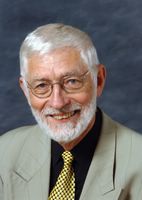 The Caribbean is a region consisting of the Caribbean Sea, its islands(most of which enclose the sea), and the surrounding coasts. In 1973, the first political regionalism was created by advances of the English-speaking Caribbean nations through the institution known as the Caribbean Common Market and Community (CARICOM).The CARICOM Regional Organisation for Standards and Quality (CROSQ) was established in February 2002. Its primary objective is the establishment and harmonisation of standards to enhance the efficiency and improve quality in the production of goods and services in the Community, to protect the consumer and the environment and to improve trade within the Community and with third states.
The Caribbean is a region consisting of the Caribbean Sea, its islands(most of which enclose the sea), and the surrounding coasts. In 1973, the first political regionalism was created by advances of the English-speaking Caribbean nations through the institution known as the Caribbean Common Market and Community (CARICOM).The CARICOM Regional Organisation for Standards and Quality (CROSQ) was established in February 2002. Its primary objective is the establishment and harmonisation of standards to enhance the efficiency and improve quality in the production of goods and services in the Community, to protect the consumer and the environment and to improve trade within the Community and with third states.CROSQ is supported by several donors, such as IDB, CDB and the EU-ACP through the EDF. To further assist CROSQ in its development, EU-ACP through its programme Pro€Invest is funding a Capacity Building Technicial Assitsance project to identify current and future institutional needs of CROSQ which will enable CROSQ to develop of an Action plan to be presented for financial support. A European consortium led by the Spanish ECA International, Entidad Colaboradora de la Administración,is providing a project team consisting of Folke Hermansson Snickars, as Team leader, and Dr Vera Poncano. The project started in October 2009 and will be completed in March 2010.


